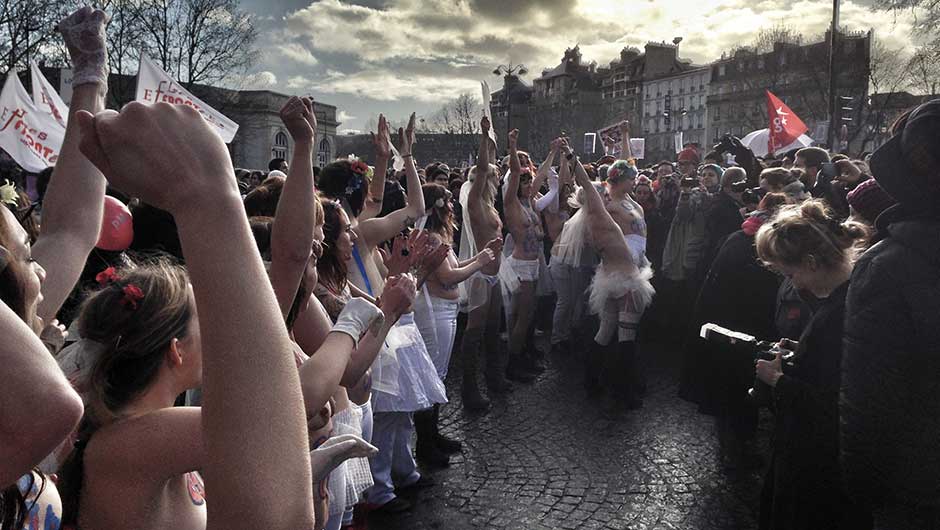After one of the longest debates in the history of the Fifth Republic, the French Assemblée nationale, the Lower house, voted in favour of ‘Marriage for All’ proposition, or same-sex marriage, with 329 votes in favour, 229 against and 10 abstentions.
Over a decade after the Netherlands and Belgium, and just a week after Britain, France finally allowes same-sex couples to get married and to adopt children.
[aesop_quote type=”pull” background=”#282828″ text=”#FFFFFF” align=”right” size=”1″ quote=” “Le mariage est contracté par deux personnes de sexe différent ou de même sexe.”” parallax=”off” direction=”left”]After ten days and ten nights heated and sometimes aggressive debates, the Assemblée voted the bill, introducing a new Article 143 in the Civil Code and amending certain other articles. More than 5,000 amendments were proposed, the majority by the opposition who thus tried to delay the debate. It was only thirty years ago that homosexuality in France became completely legal. Some MPs who voted against legalization in 1982 are still MP’s today, and voted, of course against the bill.
Protests
Opposition to the bill was in France fiercer and better organized than in other countries where gay marriage was introduced. In January, hundreds of thousands took to the streets, mostly conservative Catholics united in La Manif pour Tous. Two weeks later those in favour demonstrated in Paris, slightly less massive than the opponents (see photo above). France is the ninth EU-member (and the 13th country in the world) where gay marriage becomes possible. In the European Union, 228 million people will now have access to gay marriage, slightly less than half of the total population of the EU (504 million people). Four countries in the EU explicitly prohibit marriages between same-sex couples: Poland, Latvia, Lithuania and Bulgaria.
Except equal rights for homosexuals, advocates of the law found themselves a new hero in Minister of Justice Christiane Taubira. The bill was written by her ministry. Her opening speech (see below) lasted for almost half an hour, without using any notes. Her speech received a standing ovation from the left.
The Senate still has to examine the text and will probably do so from 2 April. Given that the Socialists are in majority here as well, the “wise men” undoubtedly will agree with the bill. A month later the decrees will be published and the law comes into force. If all goes well, the first ‘oui’ will legally sound from same-sex couples all over the country.
Retrouvez l’intégralité de l’intervention de… par LCP
This post is also available in:
![]() Nederlands
Nederlands ![]() Français
Français ![]() Español
Español





